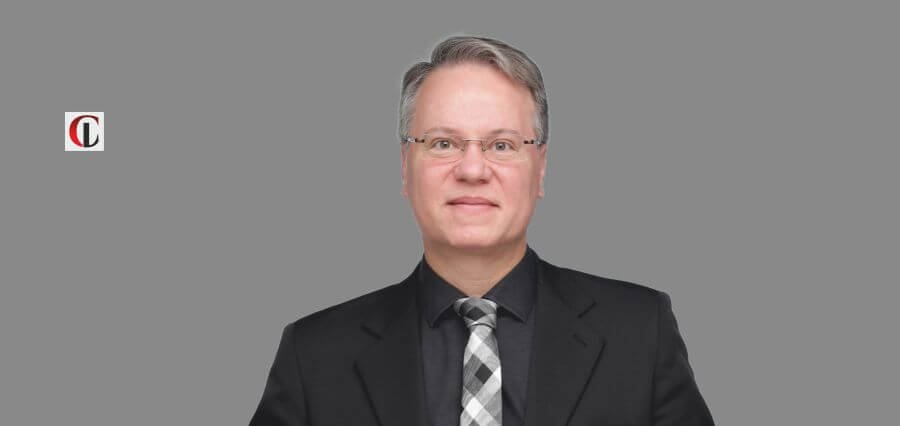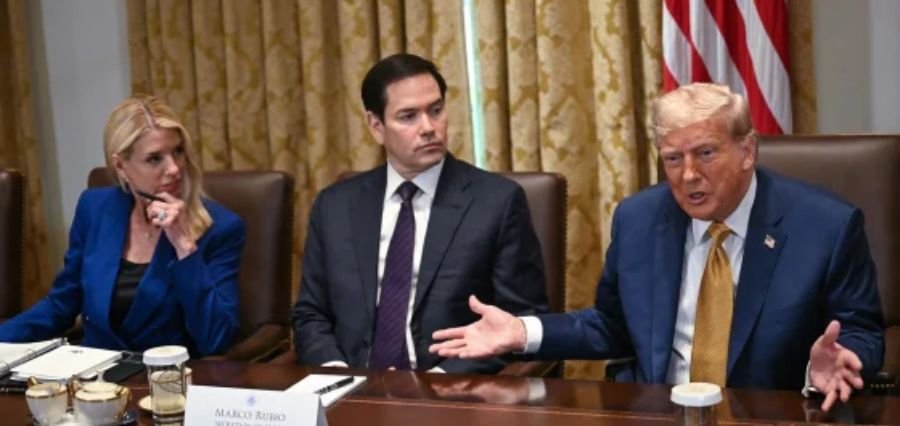Aligning Financial Plans with Business Objectives!
Every career has a story, and Eduardo Bach Anelli’s journey to becoming the CFO of PX Energy is one of dedication, tenacity, and a deep passion for finance. From the very beginning, he realized that finance wasn’t just about numbers; it was about exploring opportunities and driving meaningful change within organizations.
Starting his career in multinational companies that set global benchmarks, Eduardo gained experience across diverse financial domains, including strategic planning, budget control, treasury, and mergers and acquisitions. These early experiences gave him a strong technical foundation and a comprehensive understanding of business operations.
As he advanced in his career, he embraced increasingly complex roles, taking the lead on transformative projects such as financial restructuring, ERP systems integration, and M&A processes. Working in high-pressure, international environments honed his leadership skills, decision-making abilities, and expertise in resource management.
For Eduardo, the role of CFO is more than a title, it’s an opportunity to bridge finance with corporate strategy. He firmly believes that finance is a strategic cornerstone, capable of driving growth, innovation, and sustainability. As CFO, he takes pride in influencing the company’s direction while ensuring financial stability and fostering collaboration across teams.
What truly sets Eduardo apart is his vision to use finance as a tool for transformation. His journey is an example of the power of perseverance, adaptability, and the ability to see beyond numbers to direct a brighter future for organizations. At PX Energy, Eduardo’s leadership continues to drive the company forward, inspiring teams and aligning strategies to meet the demands of a versatile market.
Let us learn more about his journey:
Strategies for Financial Stability and Growth
Eduardo has successfully implemented several key strategies aimed at enhancing financial stability and promoting sustainable growth within organizations. His approach integrates thorough analysis, stringent controls, and a long-term strategic vision.
Key Strategies:
- Cash Flow Optimization: Ensuring efficient management of cash resources to maintain liquidity.
- Cost Reduction and Operational Efficiency: Streamlining operations to minimize expenses while maximizing productivity.
- Revenue Diversification: Expanding income sources to mitigate risks associated with market fluctuations.
- Financial Risk Management: Utilizing hedging techniques to protect against financial uncertainties.
- Focus on Governance and Compliance: Upholding high standards of governance to foster trust and accountability.
- Engagement and Team Development: Investing in team capabilities to enhance performance and innovation.
These strategies have established a robust financial foundation, crucial for sustaining growth even in volatile markets. Her commitment to efficiency and strategic alignment ensures that every financial decision supports the overarching goals of the organization.
Integrating Technology in Financial Management
Eduardo currently holds dual roles as both CFO and CIO, overseeing the technology department within his organization. One of his notable accomplishments is the successful implementation of SAP/4HANA in an oil and gas company, completed in just seven months. This rapid deployment has been recognized as a “case study” by SAP globally and led to an invitation for him to present the project in the United States, showcasing its significance in ERP implementation for international firms.
By integrating advanced ERP solutions like SAP/4HANA into financial management processes, he has observed substantial improvements in accuracy and agility in financial reporting. The automation capabilities of the system have minimized manual errors, allowing the financial team to concentrate on strategic analysis rather than routine tasks.
Moreover, SAP’s comprehensive integration across all company processes has enhanced collaboration between departments. This positioning of Corporate Controlling as a value-adding integrative agent enables the finance department to provide critical financial and strategic insights that benefit the entire organization, ultimately driving growth and efficiency.
Navigating Financial Challenges
Eduardo faced one of his most significant financial challenges during the acquisition of an oil and gas refinery in Brazil, set against a backdrop of economic uncertainty and stringent regulations. This complex project demanded meticulous risk management and delicate negotiations with various stakeholders, including financial institutions, suppliers, and regulatory bodies.
Key challenges included liquidity limitations, regulatory complexities, and the need for post-acquisition integration. To address these issues, he implemented several strategic actions:
- Intelligent Financing Structure: He developed a resource allocation strategy that ensured liquidity while maintaining competitive financial costs.
- Risk Management and Compliance: Robust internal audits were established, and collaboration with legal teams was prioritized to guarantee full regulatory compliance.
- Detailed Planning and Control: A strong focus on operational (OPEX) and capital expenditure (CAPEX) planning optimized resource allocation.
As a result, the acquisition was completed on time and within budget, facilitating a smooth transition aligned with the company’s strategic goals. The financing secured not only supported the acquisition but also enabled vital investments in new projects, enhancing the refinery’s productivity and competitiveness. This experience underscored his ability to lead under pressure and highlighted the importance of a strategic, collaborative approach to overcoming complex financial hurdles.
Encouraging Collaboration
Eduardo emphasizes collaboration within his finance team and across departments by prioritizing clear communication, shared objectives, and team integration. He establishes regular communication channels, such as meetings and progress reports, to ensure alignment with the company’s priorities. By actively involving other departments in strategic planning, he ensures that financial goals align with the organization’s objectives.
He empowers his team by delegating responsibilities and recognizing individual contributions, which fosters engagement and drives consistent results. This approach creates synergy and ensures that goals are achieved collaboratively and sustainably.
A critical element of success in any organization is having a strong team. He believes in investing in his team through recruitment, training, and ongoing motivation. Under his leadership, he has consistently built a highly qualified workforce that plays a pivotal role in driving the company’s growth and success, reinforcing the importance of collaboration in achieving strategic goals.
Importance of Forecasting in Financial Strategy
Forecasting is essential for Eduardo, as it aligns strategic decisions with market dynamics. It enables the anticipation of risks, guides investment planning, and ensures the company’s sustainability amid uncertainty. To maintain accuracy in forecasts, he utilizes real-time data and conducts scenario-based analyses to address market variables.
Regular reviews of forecasts allow for timely adjustments in response to economic or sectoral changes. Furthermore, he emphasizes collaboration by integrating the finance team with other departments in the forecasting process, ensuring a comprehensive perspective that supports well-informed and resilient decision-making in rapidly changing markets.
Key Financial Metrics for Decision-Making
Eduardo identifies crucial financial metrics that guide decision-making and reflect a company’s financial health. These metrics include:
- EBITDA: A measure of overall profitability.
- Operating Cash Flow: Indicates the cash generated from core operations.
- ROIC (Return on Invested Capital): Assesses the efficiency of capital use.
- Debt/Equity Ratio: Evaluates financial leverage and risk.
These metrics provide a solid foundation for strategic decisions, enabling a balance between growth, profitability, and financial sustainability in dynamic markets.
Ensuring Compliance
Eduardo employs a proactive strategy to stay informed about changes in financial regulations. He follows updates from reliable sources, including regulatory bodies, consultancies, and professional associations.
To ensure compliance within his organization, he implements robust internal processes such as regular audits, ongoing team training, and the use of technological tools that monitor and automate compliance.
Furthermore, he maintains close communication with legal and tax advisors, enabling swift adaptations to new regulations. This comprehensive approach ensures that the company adheres to legal requirements, mitigates risks, and upholds its credibility with stakeholders and investors.
Balancing Short-Term Pressures and Long-Term Goals
Eduardo effectively balances short-term financial pressures with long-term strategic planning through prioritization and discipline. He rigorously manages cash flow to meet immediate needs while ensuring investments align with long-term objectives.
By employing scenario analysis, tracking financial metrics, and regularly reviewing strategic plans, he adapts to evolving market conditions, maintaining flexibility without compromising the company’s overarching goals.
Influencing Economic Practices
As an active member of CORECON-PR, IBEF-PR, and IBGC, Eduardo plays a vital role in enhancing economic practices within the industry. He engages in strategic discussions and events that facilitate the exchange of ideas among professionals, academics, and industry leaders, bridging the gap between theory and practice.
By sharing insights from his practical experience, he helps develop guidelines and recommendations that positively influence financial and strategic management. His involvement promotes better governance, economic innovation, and sustainability practices, contributing to a more competitive and balanced business environment.
To be designed separately:
International Academic and Professional Background
Achieving prominent positions in finance within global corporations requires a solid academic and professional foundation, coupled with diverse practical experience. My career has been built with a focus on developing these fundamental competencies.
I hold degrees in Economics and Accounting, alongside specializations in Finance and an MBA. My academic and professional experiences in culturally diverse countries such as Canada, Argentina, Brazil, and the United States significantly expanded my strategic vision and ability to operate in multicultural environments. For example, during my time in the United States, I had the opportunity to work at MasterCard in Saint Louis, Missouri, for two years, gaining deep insights into the dynamics of global corporations.
Fluency in languages commonly used in corporate environments, such as English and Spanish, in addition to Portuguese, was crucial to my international work. These linguistic skills allowed me to lead projects and collaborate with global teams, competencies that are indispensable not only for CFOs but for any professional in leadership roles on a global stage.
This combination of education, experience, and linguistic proficiency enabled me to meet the demands of leading multinational companies, such as MasterCard and Coca-Cola (USA), Siemens (Germany), Valmet (Finland), Case New Holland – CNH (Italy), PX Energy (Canada), Haas and AHT (Austria), Bematech (Brazil), and Telefônica (Spain).
These experiences not only enriched my professional profile but also consolidated my ability to handle high-complexity demands, delivering consistent results in dynamic global markets.
Work-Life Balance
I firmly believe that balancing work and personal life is the foundation for sustainable growth in any career. For years, I have maintained this balance with discipline and control, which was essential to achieving success in globally relevant companies.
This professional success was only possible with strong family support, especially from my wife, Janete Anelli, who also has a notable career, having worked in various companies and countries while mastering multiple languages. Her partnership and understanding were crucial for my dedication to work, reflecting directly on the solid foundation we provided for our two children, Victor and Arthur Bach Anelli.
We provided them with an education that values diversity and global learning. They attended an international primary school and completed high school in Italy. Currently, they are pursuing Mechatronics Engineering at one of Berlin, Germany’s top universities. As parents, we are proud to support a new generation focused on global knowledge, technological development, and sustainability.
We believe that investing in education and global values is a significant contribution to a more balanced, safe, and sustainable planet—not just for our family, but for future generations. This vision inspires us to continue promoting positive changes in all aspects of our lives.





